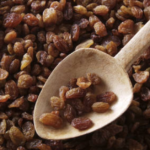The COVID-19 pandemic is not over, experts warn, and they say that Canadians should still take precautions heading into the fall months to protect themselves and the health-care system against the virus and other seasonal illnesses.

Raywat Deonandan, an epidemiologist and associate professor with the Faculty of Health Sciences at the University of Ottawa, warns that the COVID-19 pandemic is not yet over.
“(The pandemic) is raging around as wildly as it has ever been,” Deonandan told Global News.
For the week of Aug. 7 to Aug. 13, Canada had 24,161 cases of COVID-19, with Ontario having the highest number of 10,655 cases, according to Health Canada.
Although most areas in Canada appear to be at or past the peak of the current wave of COVID-19, the regional increase in COVID-19 case counts and hospitalizations continues, Canada’s top doctor Theresa Tam said in a tweet on Friday.
“As well, with SARSCoV2 continuing to circulate worldwide, Canada must prepare for renewed COVID-19 activity, including with potential new variants in the months ahead,” wrote Tam. “In particular, as part of readying ourselves for the fall, with more people returning to in-person work and children going back to school, getting vaccinations up-to-date is a top priority.”
Deonandan says the key concern for now and the upcoming season is the ability of Canada’s health-care system to absorb patients’ needs.
Across Canada, hospitals and health-care services are seeing high patient volumes due to staffing shortages. This has resulted in longer wait times in emergency rooms, a lack of ambulances and even closure of some units.
By reducing the risk of COVID-19 infection, individuals can help health-care workers alleviate stress on the system as they struggle to keep up with demand, said Deonandan.
COVID measures don’t have to be perfect
Horacio Bach, a clinical assistant professor in the division of infectious diseases at the Faculty of Medicine at the University of British Columbia, says he thinks many now have the impression that COVID-19 is over because provincial governments have lifted some or most restrictions.
“But we have to remember we’re dealing with this virus that can spike at any time,” said Bach. “We don’t know when this is coming, so just take the same precautions that we have when COVID-19 just started and follow the guidelines that we have from the start.”
Bach said Canada could expect an increase in cases during fall and winter due to COVID-19 variants.
“These variants will infect the person again, even if you’re vaccinated,” said Bach. “Even if you got COVID-19 recently or a while ago, you will still be infected because the antibodies that we generated against the virus are the antibodies against the original strain that came into the end of 2019 beginning of 2020 and there is currently no vaccine against the new Omicron virus.
“So the moment these new variants appeared, they can escape the immune system and it’s something natural as part of the evolution of the virus,” said Bach. “This is why the vaccines that we get are not so effective to stop the infection.”
Bach suggested people should even double mask to reduce the risk of infection.
Deonandan says there is a common misunderstanding that COVID protocols have to be perfect.
“They don’t have to be perfect. They have to be good and each good layering of protection adds up to a greater level of protection,” he said.
“So masks aren’t perfect, but they’re good. Vaccination isn’t perfect, but it’s good. Symptom checks definitely aren’t perfect, but they’re good,” said Deonandan.
“Doing all these things in co-ordination, you get extraordinarily good protection.”
Bach said since the protection that we have now or restrictions in place are “not so strict,” the virus continues to multiply.
“As the virus continues to multiply, a new variant may pop everywhere, at any time, at anyone,” said Bach.
Don’t forget about the flu
Deonandan says it is impossible to make an accurate prediction about the progress of COVID-19 in the fall, but he cautions against an uptick in flu infections as well.
“We have to brace ourselves for a symptomatic (infected) population that resembles COVID, but that’s not COVID,” he said.
Since the health-care system is already overwhelmed, the flu is going to add more stress to the already strained sector, said Deonandan.
He adds that people should get the flu vaccine once it becomes available in Canada because “the flu is no joke.”
“I encourage people to jump at that opportunity to reduce the load on the hospital system and minimize their own personal suffering,” he said
There was no community circulation during the 2020–2021 Canadian season of influenza, with only 69 positive detections of the virus reported, according to the Public Health Agency of Canada (PHAC)’s National Influenza Annual Report published in October 2021.
PHAC states in the report that the influenza indicators were at “historical lows” compared with the previous six seasons, which is largely related to “the implementation of non-pharmaceutical public health measures to mitigate the spread of COVID-19.”
A total of 55,379 laboratory influenza detections were reported during the 2019-2020 season, while there were 42,541 laboratory-confirmed influenza cases during 2018-2019, PHAC reported in its Fluwatch Annual Report published in March 2021 and January 2022 respectively.
The influenza vaccination coverage since 2018 was similar, with an estimated 32 to 34 per cent of adults aged 18 to 64 vaccinated against the virus.
Prior to the COVID-19 pandemic, influenza occurred with an annual infection rate estimated at five to 10 per cent in adults and 20 to 30 per cent in children, PHAC stated on their website.
While PHAC states it is safe for people aged 12 or older to get the flu shot at the same time as a COVID-19 vaccine, the National Advisory Council on Immunization (NACI) recommends children aged five to 11 have a 14-day interval between a COVID-19 shot and other vaccines.
“This is to help better monitor for possible side effects from COVID-19 vaccines,” it reads. “Provinces and territories will decide on an interval for this age group as part of their vaccination programs.”
PHAC states that the flu shot can not only protect Canadians against the influenza virus but also reduce their chances of being infected with COVID-19 and the flu at the same time.
COVID-19 safety measures as children return to school
With many returning to classrooms in September, Bach said parents should vaccinate their kids because schools are like incubators for COVID-19.
Bach said in cases where the child is immunocompromised or under specific treatments again or some diseases, parents should continue to mask their children because it is the easiest way everyone can be protected.
As of Aug. 14, 87.41 per cent of Canadians aged 12 to 17 are vaccinated with at least one COVID-19 vaccine dose, while 55.38 per cent of those aged five to 11 have at least one dose.
“I think parents have to remember that vaccination is important for reducing the risk of infection, reducing the risk of transmission and, most importantly, reducing the risk of your child being hospitalized,” said Deonandan.
“But don’t trust your Facebook friend alone,” said Deonandan. “Talk to your health-care provider if you have misgivings (about vaccinations).”
Deonandan suggests parents give their children high-quality masks, such as N95 caliber, to reduce the risk of infection.
He adds, however, that high-quality masks can be expensive, especially for low-income families.
So, schools and governments should step up and assist families to get personal protective equipment (PPEs) where they can, said Deonandan.
As for school administrations, Deonandan says implementing a mask mandate is crucial.
In situations where a mask mandate cannot be enforced, schools need to make sure all staff members are fully vaccinated and doing their best to curb the spread of COVID-19, said Deonandan.





